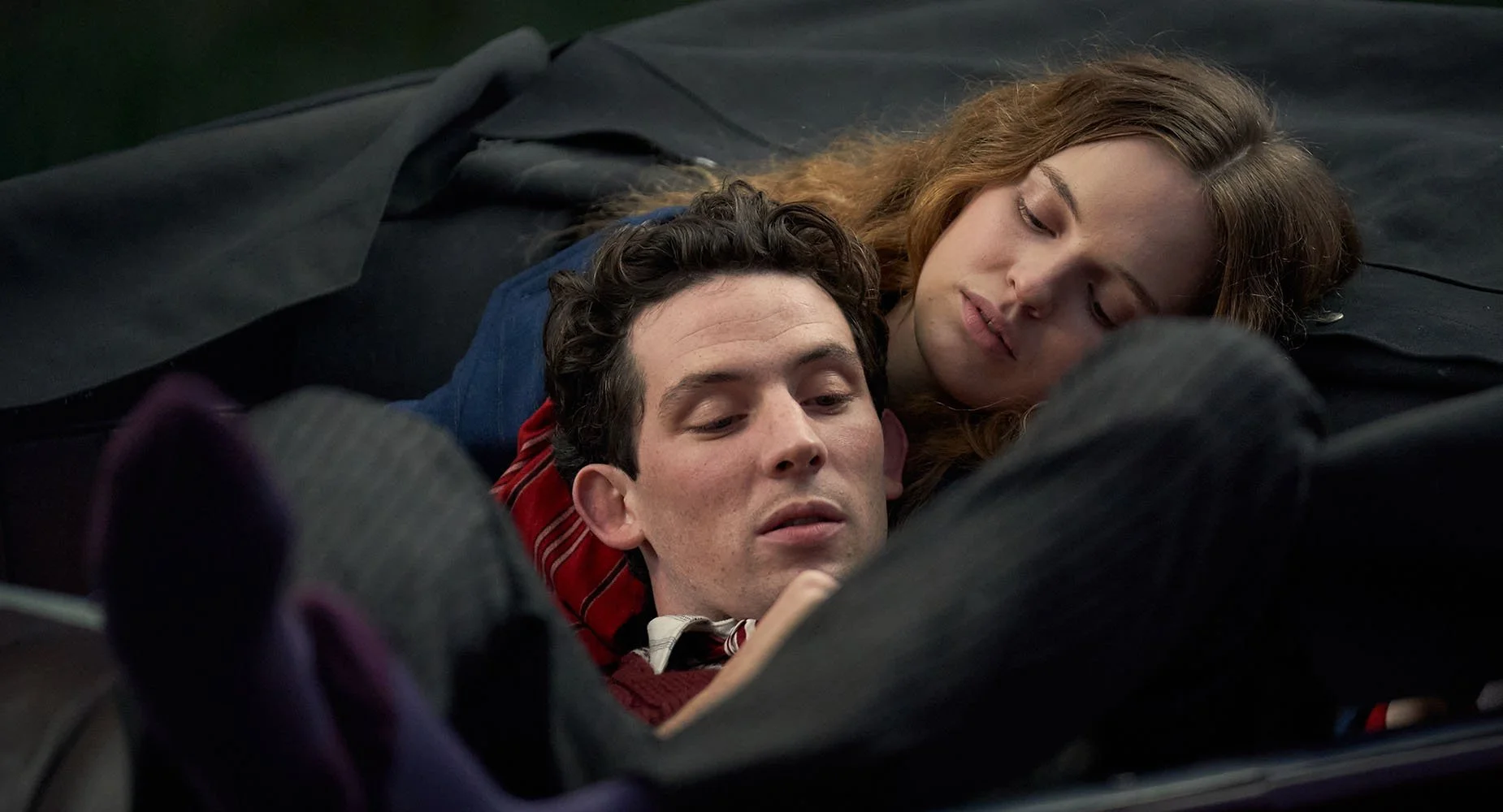Mothering Sunday
Beautifully shot, staged and acted, but ultimately unfulfilling period drama.
Jane Fairchild (Odessa Young) is a maid living in post-World War 1 England. She makes plans to secretly meet with the high-born Paul Sheringham (Josh O’Connor), whom she loves and has been having an affair with, for a romantic tryst before he leaves to marry another woman. Surrounded by the overwhelming sense of death, mourning and grief from the high-born families around her who have all lost children to the war, and interspersed with flashforwards to a future Jane who, successful in her writing, is in the midst of another loss, the film charts the final hours before a tragic accident; one that destroys the community Jane lives in, and both forces her and liberates her in the pursuit of writing.
Mothering Sunday is a prime example of slow cinema. Fundamentally, the story charts pretty much a single afternoon, with admitted flashforwards and the occasional flashback interspersed amongst that afternoon. While it is definitely interesting and intriguing, and holds your interest, it would be a stretch to say that this piece captivates it.
On the plus side, it is gorgeously shot and staged. The visuals in this film really are incredible, and for the lovers of cinematography among us, it may be tough to resist a second visit to rewatch those elements alone, even if you didn’t care for the film as a whole. With gorgeous colours, beautifully shallow depth of field, and a penchant for focusing not on faces but on details (around lips, shoulders, hair and more), this really is stunning to look at. Be forewarned, however, this isn’t one to take the kids to nor a prickly mother-in-law; our main duo are naked for probably 45% of the runtime, and they don’t shy away from anything.
It is also a wonderfully acted film. Colin Firth and Olivia Coleman do wonders with small roles, completely swallowed by their pain and loss. The main duo are also extremely compelling, particularly Young, who has to play really three versions of the same character throughout; the naive young lover in flashbacks, the realist, desperate and last-ditch hopeful lover in the main timeline, and the cynical, but faintly hopeful and wistful one in the flashforwards.
The scripting is also fairly admirable. The piece for most of the runtime works extremely well, and lines like Coleman’s biting remark to Young’s Jane, or Firth’s simple approval of her characters choice to move on, hit home and trust the audience to work with little wordage, and lots of performance.
Where stems the issue then? Ultimately, Mothering Sunday feels empty, and that’s a problem. Sure, there are the occasional general missteps - chief among them a horrible reporters-at-the-door scene with a much much older Jane, which feels plucked from an entirely different film. But the issue with the film is more insidious than that. The whole thing feels bereft of weight, and import. It’s tough to pinpoint where exactly that happens. Perhaps the film is too slow cinema for its own good. Perhaps it is the arrangement of the scenes, or a characters lack of backstory. In the end, this is a story about the lingering effect of loss, and both its inhibiting effects and its catalysing ones. We’re looking at all of these characters feeling so much - so much pain, so much loss, so much grief - and yet we feel nothing. That’s why the film, despite being stunningly beautiful, is ultimately unsuccessful.


